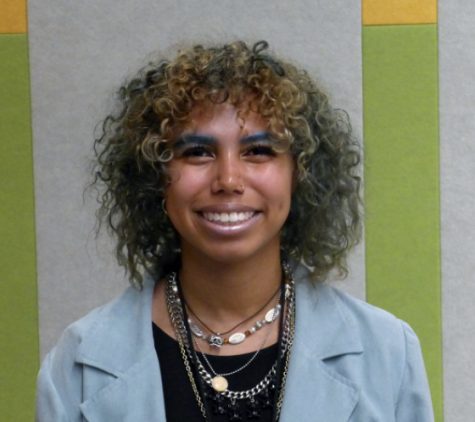
RACIAL SPOTLIGHT: CAMILA TAVAREZ
HISTORY RACE & CHANGE
May 6, 2021
SIREN staff writer, Jade Davis, had the honor of interviewing Camila Tavarez, a sophomore health science major from Midland. For this third Racial Spotlight, Tavarez discusses (via email) the perspective of being Afro-Latina.

“I honestly tend to lean towards having both minority and Caucasian friends, but somehow I feel like it’s super hard to be friends with someone who doesn’t really understand what it is to be a minority, and that’s why my Caucasian friends aren’t many. I don’t expect anybody to know what I have to go through, but it’s definitely a bit of a relief when your friends can understand what you have to go through. I pick my friends very wisely, and them being able to understand my struggles as a minority myself and knowing that [they] will be there to stand up for me…it’s a bit of a relief.”
“No one has ever said anything hurtful regarding my ethnicity [at Lincoln Park], however I have received random looks when I speak, and those looks come from people who aren’t minorities. However, as I have many minority friends, I have been present with them when they were called the n-word, and even though it wasn’t directly said to me, as an educated minority, I do understand the meaning behind the word and it did hurt me, and I did stand up for my friend…however, it was a very degrading feeling to have to experience that with them, so I stood up.”
“I don’t think it’s a bad idea for African American people to use the [n-]word, as long as they feel comfortable using it. However, if you’re not African American or from that descent, that word should never come out of your mouth. Many African[s] follow that logic that because they have suffered from the use of the n-word, they should be the only ones who have the right to use it, and I strongly agree with that because: you’re choosing to use [it], and because to [African Americans] when they reclaim it, they can use it any way they want. It isn’t necessarily repeating a racial slur; it’s more of an act of defiance. Therefore, the word is thought to have changed in meaning and is only a racial slur if used by a person from another race.”
“ …[S]omething that makes me beyond proud to be a minority [is] because I love being part of such a rich and diverse culture, as well as [having the] opportunity to prove people wrong about a lot of misconceptions they have about a minority girl in America.”
